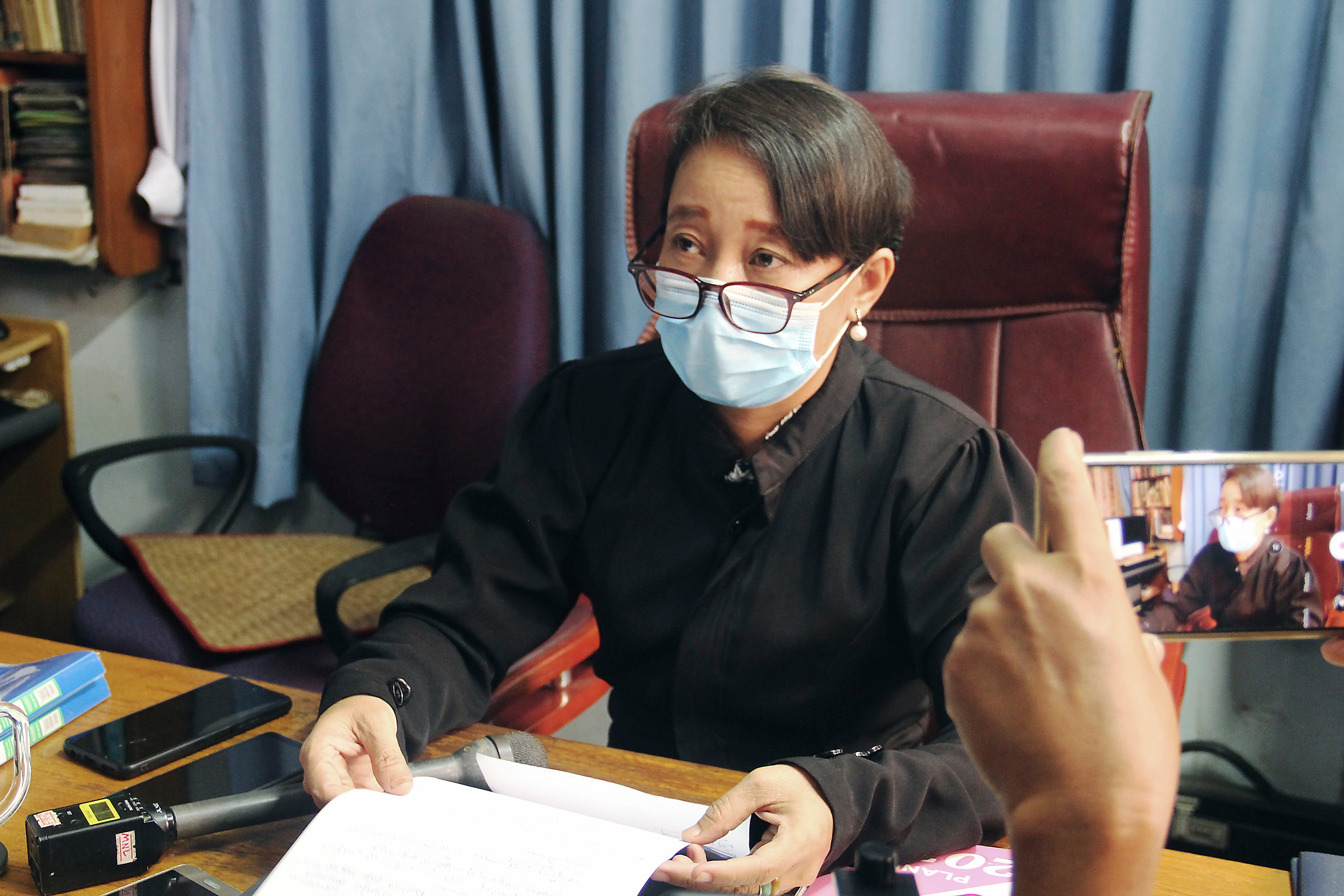Myanmar court denies bid by Suu Kyi to disqualify testimony
Myanmar’s ousted leader Aung San Suu Kyi has suffered a legal setback when a judge denied her lawyers’ motion to disqualify prosecution testimony against her on a sedition charge

Your support helps us to tell the story
From reproductive rights to climate change to Big Tech, The Independent is on the ground when the story is developing. Whether it's investigating the financials of Elon Musk's pro-Trump PAC or producing our latest documentary, 'The A Word', which shines a light on the American women fighting for reproductive rights, we know how important it is to parse out the facts from the messaging.
At such a critical moment in US history, we need reporters on the ground. Your donation allows us to keep sending journalists to speak to both sides of the story.
The Independent is trusted by Americans across the entire political spectrum. And unlike many other quality news outlets, we choose not to lock Americans out of our reporting and analysis with paywalls. We believe quality journalism should be available to everyone, paid for by those who can afford it.
Your support makes all the difference.Myanmar s ousted leader Aung San Suu Kyi suffered a legal setback Tuesday when a judge denied her lawyers’ motion to disqualify prosecution testimony against her on a sedition charge, her defense team said.
The court, however, said it would allow the issue to be referred to the High Court and would suspend testimony until a ruling is issued. Ousted President Win Myint and the former mayor of Naypyitaw, Myo Aung, her close political allies, are co-defendants in the charge.
The court will continue to hear prosecution testimony on other charges Suu Kyi faces: that she illegally imported walkie-talkies for her bodyguards’ use and used those radios without a license, and violated COVID-19 pandemic restrictions on two occasions during the 2020 election campaign.
Suu Kyi went on trial on June 14 in a closed court in Naypyitaw, the capital. The ruling military junta is widely seen as using the charges to discredit her and consolidate its control. Sessions are being held weekly on Mondays and Tuesdays.
The military took power in February after ousting Suu Kyi’s elected government and arresting her and other top officials in her administration and National League for Democracy party, which had been due to start a second five-year term after winning a landslide victory in a general election last November.
The army has said it will hold new polls within two years of its takeover, but a conviction on virtually any charge could result in Suu Kyi being banned from running.
The sedition charge, which is sometimes called incitement, provides for up to two years’ imprisonment for anyone guilty of causing fear or alarm that could create an offense against the state or public tranquility. It has been law since Myanmar was a British colony, and has been criticized as a catch-all statute that infringes on freedom of speech and is used for political repression.
The plaintiff. a local Naypyitaw official, cited two statements posted on the Facebook page of Suu Kyi’s party as evidence supporting the sedition charge.
Suu Kyi’s defense team raised an objection to that testimony, noting that all members of the party’s central executive committee, including Suu Kyi, had already been arrested before the statements were posted.
San Mar La Nyunt, the defense lawyer handling the sedition case, said they raised the objection because the prosecution witnesses’ testimony “was not in accordance with the law.” After the court ruled it allowable, they asked for and were given permission to apply to the High Court.
Suu Kyi faces additional charges that have yet to be tried, among them allegedly accepting bribes, which carries a penalty of up to 15 years in prison, and violating the Official Secrets Act, which has a maximum prison term of 14 years.
Suu Kyi, 76, who has not been allowed a public appearance since her arrest, passed a message through her lawyers for the public to stay united in the face of the political situation and the COVID-19 crisis.
She also said that a doctor and a nurse are assigned to her, but that she is in good health, said another of her lawyers, Min Min Soe. Earlier in the trial, Suu Kyi had complained of a toothache.